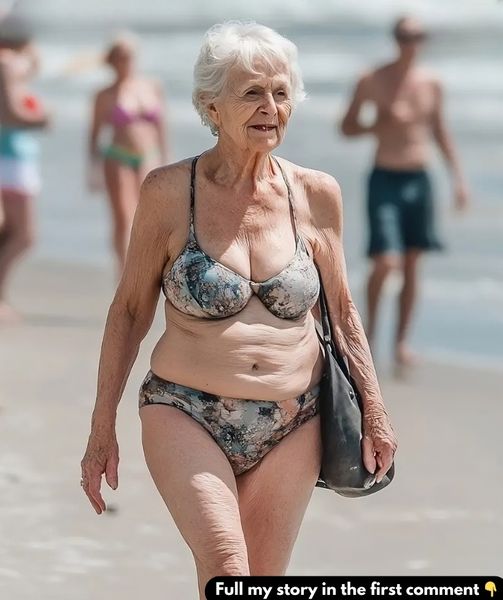Every summer, like clockwork, the media bombards us with images of women on vacation, analyzing their bodies down to every detail. Are they wearing bikinis? Are they “too old” or “too big” to pull it off? The unsolicited commentary follows quickly: “Why is she wearing a bikini at her age?” or “Shouldn’t she be in a one-piece?” Unfortunately, this ritual of body shaming has become a hallmark of the summer season. Paparazzi photos and scathing headlines perpetuate unrealistic beauty standards, but why is this the norm? And what does it say about society’s obsession with women’s bodies?

The Annual Spectacle of Body Shaming
Let’s be honest: it’s a spectacle. During the summer months, some media outlets seem to revel in showing images of female celebrities in swimsuits. These photos aren’t just harmless snapshots; they’re used as weapons. Paparazzi often capture women in unflattering moments—adjusting a towel, stretching, or bending over. If the photos aren’t scandalous enough, editing can always enhance imperfections.
But why do these images get so much attention? Why is there such a public demand to see women, especially those who are older or don’t fit into a size eight, mocked simply for existing?
Why Women’s Swimwear Choices Are Everyone’s Business
Women’s bodies have long been treated as public property. When a famous woman steps out in a bikini, her body is subjected to scrutiny and critique. It’s not just about fashion—it’s about sending a message. Society has long imposed unspoken rules about how women should look and age. If they deviate from these expectations, they open themselves up to ridicule.
The Pressure of the “Bikini-Ready” Body
Each summer, we hear about getting the perfect “bikini body.” The implication is clear: only certain types of bodies are acceptable for a bikini. If you don’t fit that mold, you should cover up. This idea has fueled an entire industry of fad diets, extreme workout programs, and wellness products targeted toward women. The underlying message is that women must continuously strive to meet society’s narrow physical standards or risk being seen as “unworthy” of enjoying their summer in the sun.
The Double Standard: Age and the Bikini
While men occasionally face scrutiny, the focus is overwhelmingly on women, especially older women. Male celebrities are generally allowed to age, gain weight, or go gray without criticism, and sometimes they’re even praised for it. But if a woman ages—and especially if she wears a bikini—the criticism is swift and harsh. The media often disguises its critiques as admiration, encouraging readers to pass judgment on these women, even if it’s subtle.
Paparazzi: Turning Private Moments Into Public Shame
Paparazzi play a central role in this bizarre summer ritual. Their long lenses don’t seek out glamorous, posed shots; instead, they hunt for ordinary moments that humanize these women. A casual moment, like applying sunscreen or sitting comfortably on the beach, is captured and turned into an opportunity for public humiliation.
Capturing Women in Vulnerable Moments
These photos are deliberately designed to be unflattering. A woman bending to reach something or adjusting her swimsuit is turned into a joke. Society has turned beach vacations into opportunities for ridicule, as if women simply enjoying their holiday have somehow invited the world’s criticism for not being “camera-ready.”
Public Humiliation as Entertainment
What’s most troubling is that people seem to find this public shaming entertaining. There’s a cruelty behind it that society has largely become numb to. The cycle of “shock, shame, and share” has made it socially acceptable to treat women’s bodies as a source of entertainment, often ignoring the emotional toll it takes on the women involved.
The Psychological Impact of Body Shaming
Studies show that exposure to body-shaming content can harm mental health, leading to lower self-esteem and greater body dissatisfaction. This doesn’t just affect celebrities; it affects all women. When the media creates a narrow standard for what kind of body is acceptable in a bikini, it sends a damaging message. Many women internalize these unrealistic standards, leading to feelings of inadequacy and self-consciousness, even in private settings.
Reclaiming the Bikini: A Shift Toward Body Positivity
Fortunately, more and more women are pushing back against these toxic narratives. The body positivity and inclusivity movements are gaining momentum, encouraging women to embrace their bodies at every size and age. Women are beginning to unapologetically take up space on the beach, regardless of what society says.
Conclusion: Ending the Summer Shaming
This annual summer spectacle of body shaming needs to stop. It’s more than a tabloid trend; it reflects a society that still imposes rigid standards on women’s bodies. The irony is that the women being judged are often the most relatable. They’re not on a red carpet; they’re simply enjoying their vacations like everyone else. It’s time to let them be. Instead of judging women’s bodies, we should celebrate diversity in age, shape, and size. Every woman deserves to enjoy the sun in peace, free from judgment and criticism. Let’s change the narrative this summer: every woman deserves the right to wear what she pleases and feel confident in her own skin.





